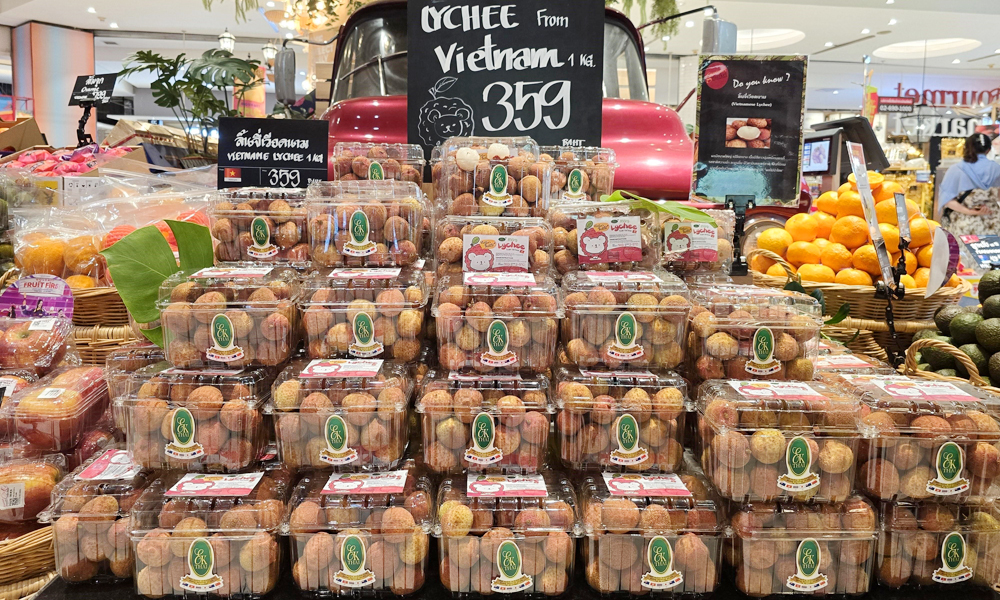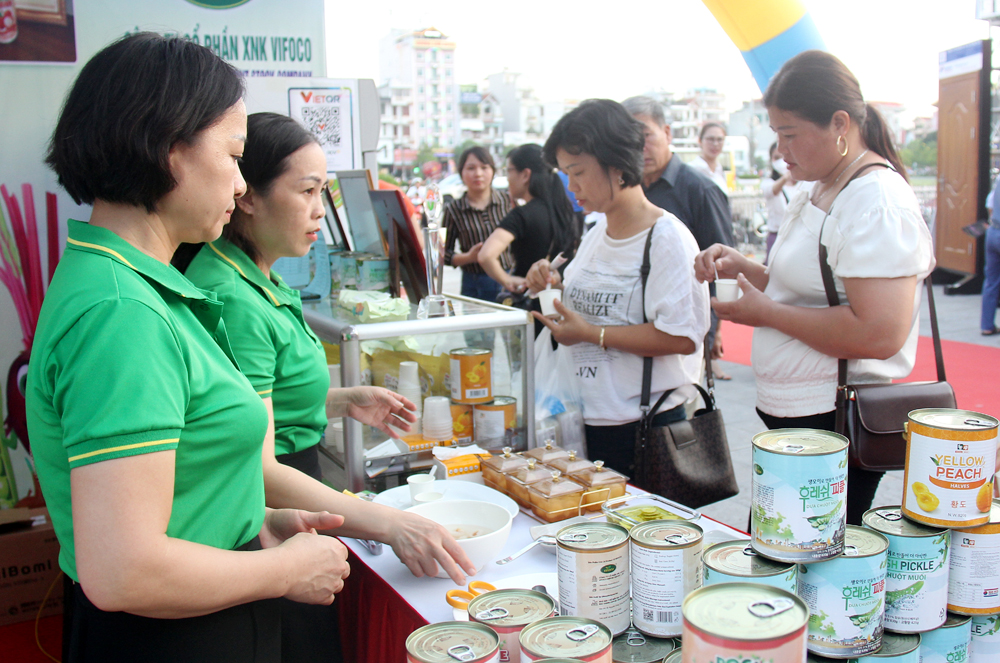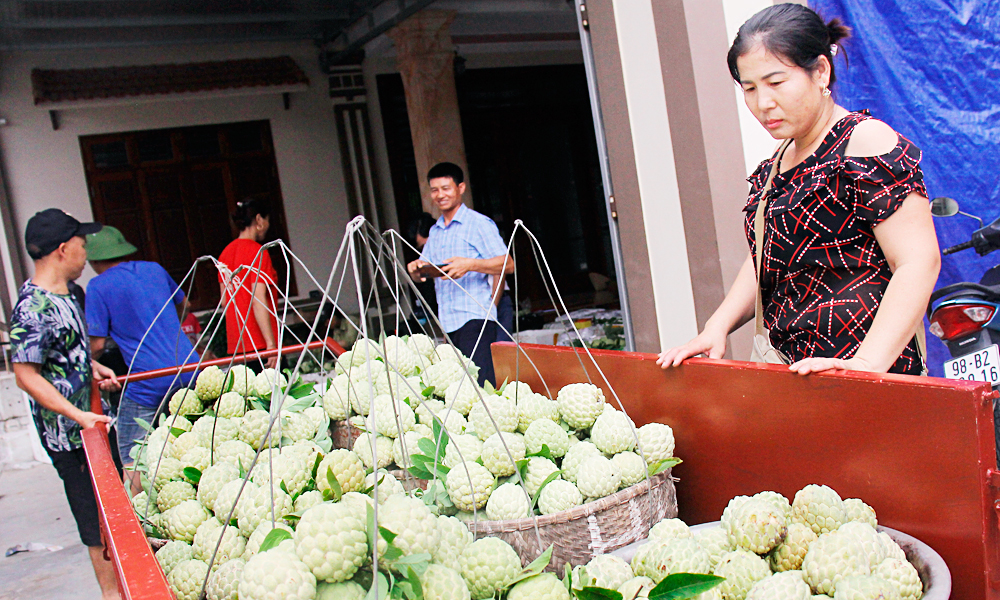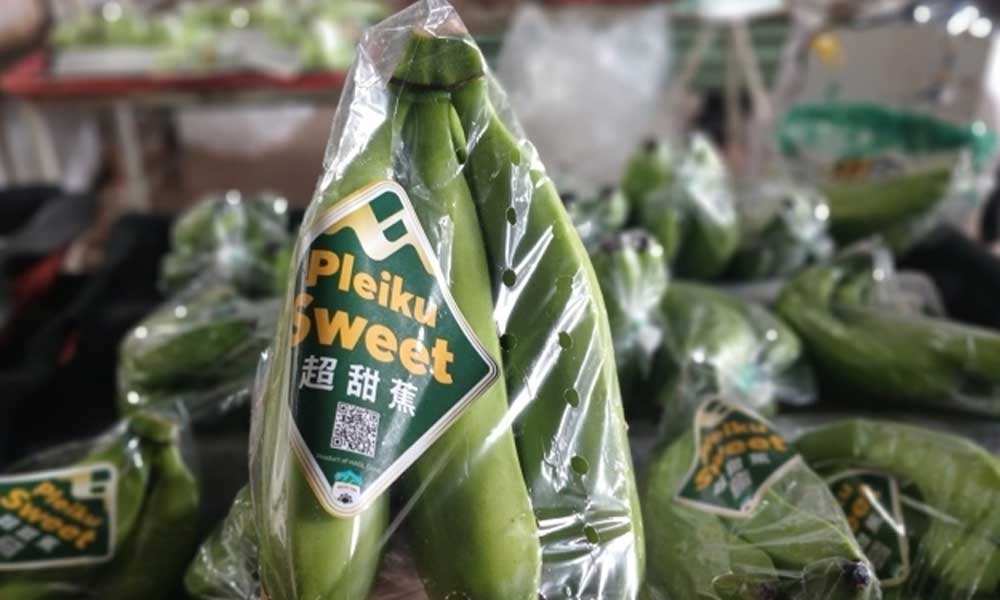Promoting sustainable development of OCOP Products
After 5 years of implementation, the "One Commune, One Product" (OCOP) programme has been comprehensively and widely carried out in all localities across the country. It is considered a crucial solution and task in executing the National Target Programme for building new-style rural areas during the 2021-2025 period.
According to data from the Central New-Style Rural Areas Coordination Office under the Ministry of Agriculture and Rural Development as of June 2024, the country has approved 13,368 OCOP products. The number of products is increasing monthly, and the product structure has recorded changes, with over 70% of products receiving a 3-star rating, about 26% are rated as 4 star, and the remaining products are rated 5 star.
|
|
|
A booth displaying OCOP products from Quang Ngai Province. |
The commodities are also extremely diverse, and notably, the programme has received the active participation of cooperatives. The OCOP programme has not only positively impacted rural areas’ economic development but also significantly contributed to social aspects as the scale of labours continues to increase. Of the labour force, around 40% are female and 18% are ethnic minorities. The OCOP programme has also brought about significant commercial changes.
However, the development of OCOP products still has many limitations and has not truly ensured sustainability. Many OCOP products have yet to find a solid foothold in the market.
In some localities, the proactive involvement of authorities is still limited. There is a lack of genuine interest in substantial support solutions for OCOP entities, particularly in enhancing capabilities in organisation, management, processing, and trading.
Many products focus solely on packaging and design, but neglect the quality factor, especially concerning consumer preferences. Furthermore, credit capital is considered a lever to help OCOP products reach further, but the banks face numerous difficulties and obstacles during the implementation.
For instance, the OCOP certifications are issued collectively to cooperatives and their members, without individual certifications for each member. This has caused difficulties for individual members of cooperatives in obtaining loans. Additionally, the entities have difficulty in accessing the market, and a lack of financial invoices for transactions hinders proper statistical and accounting practices. This non-compliance with the state’s invoicing regulations means banks lack sufficient grounds to assess and approve loans.
To make the OCOP programme effective and sustainable, the involvement of the entire political system is necessary, and the legal framework needs to be ahead of the curve. Banks and credit institutions should continue to facilitate favourable conditions for businesses, cooperatives, and individuals to access credit with preferential interest rates.
For their part, OCOP entities must continuously improve their products to match consumer preferences. Furthermore, efforts to promote OCOP products should be intensified to raise awareness among the public, agencies, and organisations of the importance of the OCOP programme, thus contributing to boosting sustainable rural economies and environmental protection.
Source: NDO
 Bắc giang
Bắc giang














Reader's comments (0)